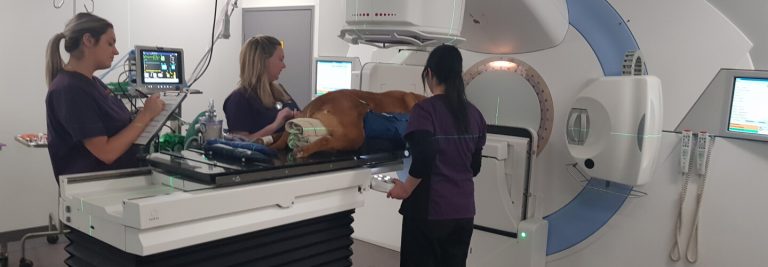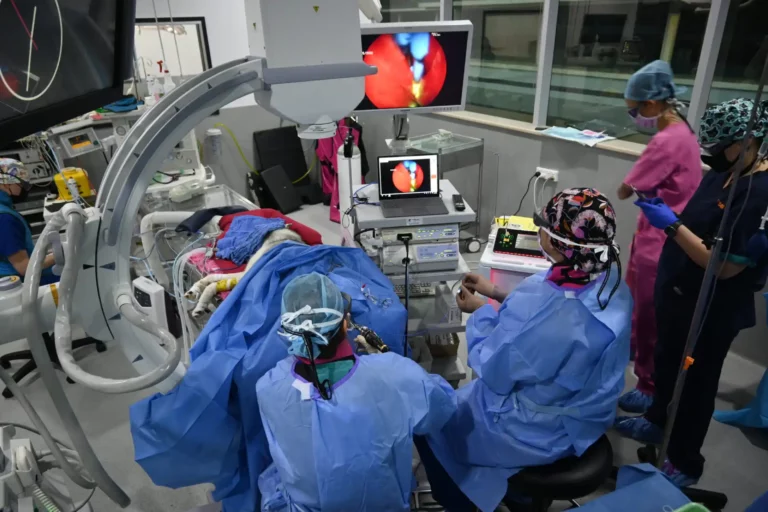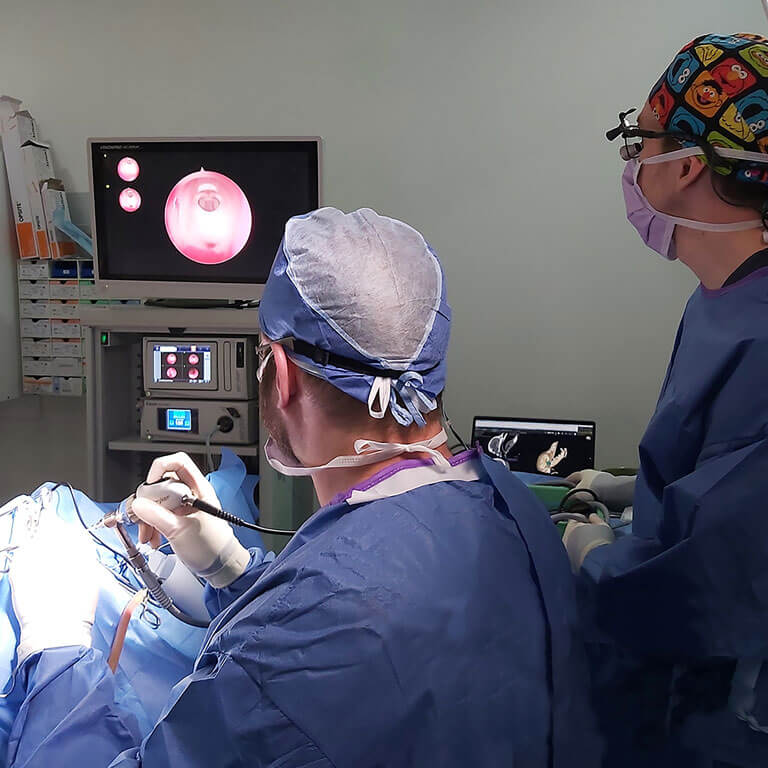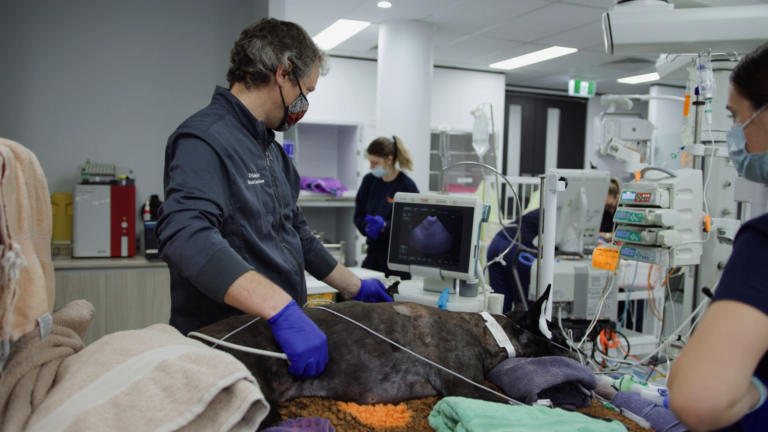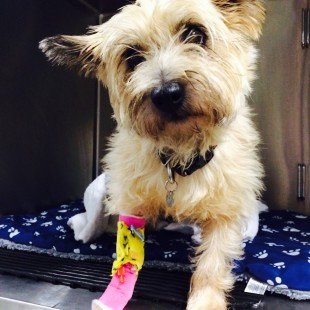One friend’s experience with Radiology
Most Australians know the environmental hazards of tossing rubbish on the ground instead of the bin. But careless cases of littering can not only harm our native flora and fauna, but have deadly effects on our pets too.
Like many Cairn Terriers, six-year-old Rosemary is an inquisitive pup. While on a walk with her owner, her nose took her scavenging and much to their frustration, she was seen snuffling up something unknown.
Poor Rosemary then started to pay the price for her indiscretion. She began vomiting and stopped eating. She was treated for gastritis, but the symptoms continued, so Rosemary was taken to see Dr Phil Brain at SASH.
An abdominal ultrasound examination showed that there was no intestinal obstruction or pancreatitis present, but a suspicious structure was definitely in Rosemary’s stomach. Rosemary still wasn’t improving so the team at SASH decided to use an endoscope (flexible camera) to look at Rosemary’s stomach and this showed the cause of the problem… a corn cob.
Thankfully for Rosemary we were able to grab this with forceps guided by the scope and remove it without any need for surgery.
Dropped corn cobs are unfortunately a common opportunistic snack for unwitting dogs like Rosemary, and in her case are often just the right size to obstruct the intestines, leading to an emergency.
It just goes to show, littering is never a good idea, as even something that seems as inconsequential as a corn cob can be highly dangerous for our furry friends.
“Thankfully for Rosemary we were able to grab the corn with forceps guided by the scope and remove it without any need for surgery.”
Dr Phil Brain
